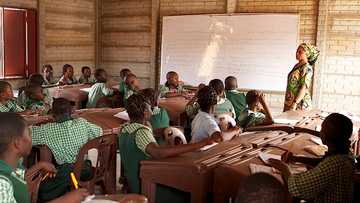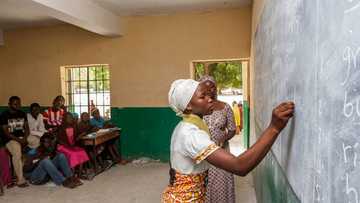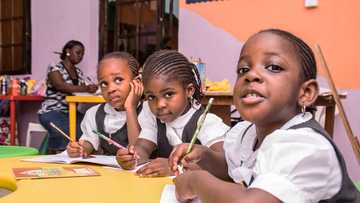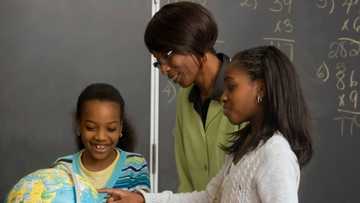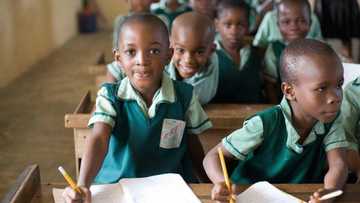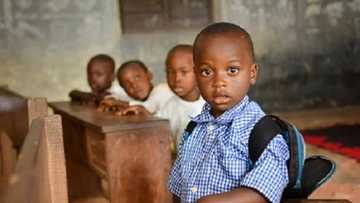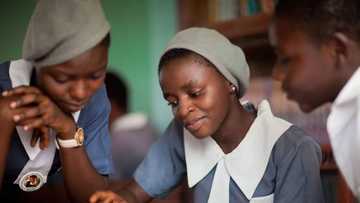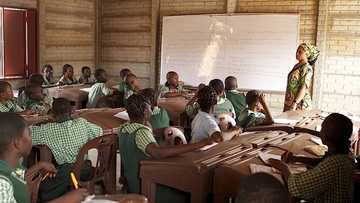What is non formal education: everything you need to know
We are all acquainted with the concept of formal education. However, not everybody knows what non formal education is. So, let’s take a closer look at this concept and other related questions like the programs it offers, kinds of non-formal education institutions, and so on.

Source: UGC
The concept of non-formal education (NFE) has been discussed since the 1960s. It first appeared in 1968 in the book of Philip Coombs, an assistant secretary of state for education and culture in the USA, "The World Educational Crisis: a systems approach". In the 1990s, the lifelong learning discourse began which influenced the field of education not only in the USA but throughout the world.
What is non formal education definition?
According to Rogers, another American activist, non-formal education can be defined as "any organised educational activity outside the established formal system - whether operating separately or as an important feature of some broader activity - that is intended to serve identified learning clienteles and learning objectives". It is concerned with the question of lifelong learning.
To define non-formal education, one should probably start with the definition of formal education. Formal education is an institutionalised, intentional form of learning provided by specialised institutions. In turn, non formal education meaning is about an additional, alternative and complementary way of education which implies the process of the lifelong learning of people of different age groups.
This kind of learning may be either brief or life long, of low or high intensity. It is usually provided in the form of the course, workshop or seminar. While it is called non-formal, this type of education can lead to obtaining the qualifications. They differ from the formal requirements but still are recognised by relevant national educational authorities.
Principles of non-formal education
British philosopher and sociologist John Lewis states that the concept is dealing with the importance of education, learning and training which is carried out outside the traditional educational institutions. There are many guiding principles that can help an educator to design a fruitful NFE experience.
Non-formal education has to be consistent with the following principles:
- Focusing on the satisfaction of the needs of participants. They may include disadvantaged, marginalised groups and specific categories of people like youth, adults, women, poor and disabled people.
- Flexibility of the organisational process and curriculum that can be changed. How much the program is flexible depends on the subject and purposes of the program.
- Learner-centred approach to learning. A learner is a crucial figure in the learning process. At the same time, he plays an active role in the learning process which should be adapted to his abilities and circumstances.
- Human relationships in the non-formal learning process are informal.
- Democratic and non-directive style feature NFE.
- NFE is focused on practical skills and knowledge, development of creativity.
Out-of-school learning often includes programmes that contribute to adult and youth literacy. It may also involve plans on life or work skills, social, personal, social, professional and cultural development. This form of learning is aimed at engaging people on a voluntary basis.
Out-of-school learning usually takes place in a diverse range of environments like work, family, daily life, spare time, etc. it depends on whether it involves specific target groups like youth, adults, disabled people or other social groups. This form of education implies learning by making things, performing activities, etc. It is especially beneficial for young people. It allows them to acquire necessary competencies and skills to become active citizens and improve employment prospects.
It is also helpful in the building organisations, communities, systems and institutions. Non-formal learning activities are of great importance as they positively influence society growth and development, especially, in developing countries. Non-formal education can also be concerned with such vital concepts as social integration, anti-discrimination, active citizenship and so on. So, the answer to the question of what is non-formal education is that it is not only an educational approach, but it covers a wide range of social issues.
One of the main principles of non-formal learning activities is about a learner-centred approach. While various training systems are complementary to formal education, they allow the participants to acquire the needed skills and qualifications provided to them on a voluntary basis. Adults, young and people with fewer opportunities can realise their aspirations, satisfy needs and develop interests.
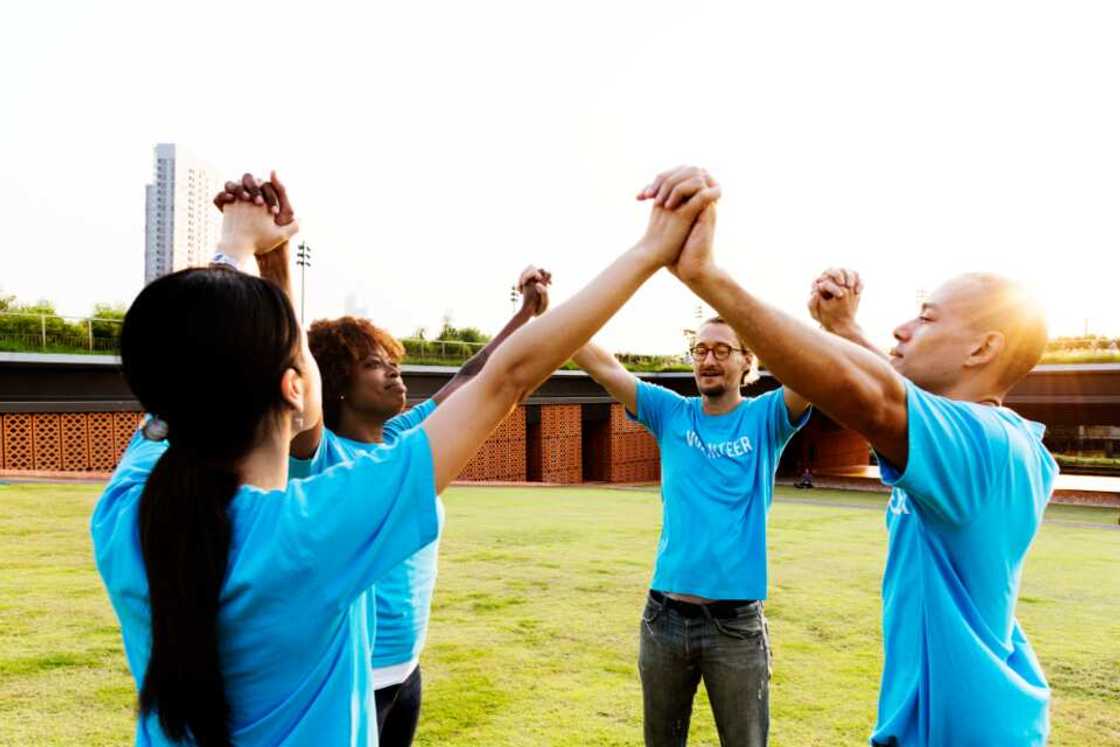
Source: UGC
Difference between formal, informal and non-formal education
A difference between formal and non-formal education is significant. In many cases, formal education is not able to adapt to the rapidly changing socio-economic conditions, especially, in western countries. This where non-formal education comes into action. Formal schooling has probably undergone many reforms in every country. NFE is expected to fill the gaps in the formal education approach. In the end, non-formal education was established as the form of education that would be able to supplement the additional educational needs of various social groups.
Some confusion arises when one compares the term informal education with the above concepts. This confusion may dispel if one can make a clear-cut distinction between these three terms.
Formal education is a hierarchically structured system that involves different grades like studying at the primary, secondary school, university, college, etc. FE is provided by state educational institutions and professionals like teachers, lecturers, professors and so on. FE implies full-time training in the classroom. The objective of FE is to promote formal learning which uses the syllabus, and educational activities learners are engaged in. Children and students are the main participants of the formal learning process.
The outcomes are measured mainly by tests as the most convenient form of assessment. Adults usually don’t participate in formal learning.
Informal education is often confused with NFE. It refers to the lifelong process when people obtain knowledge, skills, qualifications, attitudes, values based on daily experiences. People learn different things throughout their lives. Children learn to walk, speak, read. They do this mostly by playing, imitating parents, teachers, siblings, friends who encourage them and correct their mistakes. When children grow up, they learn from the environment, work, market place, libraries, TV, social media and other sources. Informal learning is partly incidental and involuntary. It is an unavoidable part of daily life that, as a rule, takes place outside the school, university or college.
NFE refers to the form of education that is opposite to FE. Notice that the terms non-formal and informal are not synonyms. NFE is an organised activity outside the formal learning environment, that is, classroom or auditorium that still involves performing learning activities.
One cannot be forced to NFE. It should arise from the conscious decision to acquire a particular skill or get acquainted with a specific area of knowledge. NFE doesn't follow a formal syllabus, and it doesn't imply testing participants to assess their understanding. Non-formal education may take place in such places as swimming class, sports club, music school, reading group, debating society and so on.
Non-formal learning methods
While this is an additional source of learning, it still has to be high-quality. Non-formal learning implies using educational activities and practices that are not included in formal education.
While many think that formal and non-formal education are the opposite, they are similar or overlapping. NFE methods imply using practices that are developed with consideration of the specifics and needs of a particular group of participants. NFE activities have to be adapted to the learner's age, rhythm as well as a curriculum subject. Every method of non-formal learning has to be based on creating a healthy environment of care and sharing knowledge and experience.
READ ALSO: Evolution of junior secondary school in Nigeria
What is non formal education in different fields?
When talking about fields where non-formal education programs are implemented, they include:
- Motivational raising, technical, on-the-job training;
- Trading, management training;
- Community and political development;
- Literacy training.
The out-of-school learning may take various forms beginning with small-scale individual or group activities to extensive national programs. They may include both highly specialised to generalised programs, adult and children schooling, programs for beginners and advanced learners, intensive and standard schedule courses. State institutions or commercial agencies may offer Out-of-school activities.
These distinctions help to understand the complexity of successful learning. Different forms of education can be described as an example of language learning. When children learn to read, they can perform this activity in three different ways. Formal education implies learning a language at school. Informal education refers to learning a new language throughout the whole life. Non-formal learning is based on learning a language outside the classroom with the use of creative and practical methods. In the case of language courses, they can be regarded both as informal and non-formal education.

Source: UGC
Non-formal education criticism
While non-formal education offers additional possibilities for the learning process, it is often criticised for such disadvantages as:
- Lack of an accurate definition and clear conceptual framework;
- Inability to implement the goals of NFE into the learning process;
- Lack of change in the implementation of the NFA programs since the beginning of practising this approach (for more than 40 years), especially, in terms of literacy or alleviating poverty programs;
- Limited academic contribution to the educational development of the concept.
Achievements in the field of NFE
There have been created many online free courses and programs, for example, Massive Open Online Courses (MOOCs) that received recognition among various social groups in many countries of the world.
NFE is constantly changing showing positive prospects for future development. In the future, non-formal education is expected to be similar to formal education. Constructivism and various socio-cultural approaches such as the learner-centred approach will be implemented in NFE. As for technological development, it will probably affect both formal and non-formal education significantly as it can help to facilitate the process of building the organisations. While developed countries struggle to unify these two fields, most of the countries have a growing need for better development of both. Some of the objectives of non-formal education include:
- Flexible schooling. The truth is participants are not able to decide about such logistical issues as timing and location as these issues belong to the providing agency. They also cannot influence the curriculum, learning materials, the forms of education. All these questions should be in control of the learners to the same extent as of the providing agencies.
- Participatory education. Such issues as educational goals, content, methods are also controlled not by the learning groups but the educators and providing agencies. This situation is supposed to be changed in the nearest future.
Types of non formal education institutions
There are many types of non-formal education. They are distinguished by the social group, the field of knowledge as well as the education subject. Let's take a closer look at some of the most popular types of NFE.
The particular type of NFE is represented by the forms of education that only applies to the specific groups of people like adults, youth, women, poor, and others.
The most popular and developed concept of non-formal education is adult education. It arose in the 19th century. Danish clergyman, philosopher, and educational thinker Grundtvig introduced this concept and described the Danish education system. He revealed his thoughts concerning free educational opportunities for adult individuals.
No professional qualification or certification is needed to become a participant in the open educational process. Provided by the NGOs’, non-formal education comprises such forms as day folk high schools, private independent boarding schools, voluntary activity in associations, university extension courses and other.
The voluntary activity in associations
The voluntary activity in associations can be established by a non-formal education association that has a statute, that is, is eligible. In 2010, there were nearly 17,000 associations. Approximately 1,500 of them were known to be voluntary associations working in the field of non-formal education.
The local authority is a body that sets the rules for administering the non-formal education associations. They can also appoint a committee that performs administrative tasks like undertaking decisions about the activity of NFE associations.
The objective of non-formal education associations is to increase the participant’s general and academic knowledge and skills. It also is aimed at enhancing the ability to take responsibility for his own life and get more engaged in social life. Voluntary learning in associations for children and youth involves sports, political and religious, philosophically related and socially engaged activities. Non-formal education in associations comprises study circles, lectures, debate creating activities and other activities offered at evening schools. In 2010, around 2 million people participated in association activity.

Source: UGC
University extension courses
The committees provide the university extension courses at the University Extramural Departments. The states give grants for lecturers and teachers offering learning activities. In 2010, there were around 90,000 participants in the extramural university courses.
Day folk high school
The aim of the day folk high school is to offer employment-creating goal. It is mostly organised for adults. The day folk high school courses usually last from 3 to 15 weeks or more. The day high schools are organised as independent, self-governing institutions with their boards and statutes. They are supervised by the local authorities that award grants to them. In 2010, there were nearly 50 day high schools in the USA.
Private independent boarding schools
Private independent boarding schools are the educational institutions that include home economics and arts and crafts schools, folk high schools, continuation schools and other. The aim of the private independent boarding school is the interpretation of life. It is also focused on general democratic values. Every school bases its activity on the chosen core value.
An interesting peculiarity of the private independent boarding school is that the pupils (children or adults) live at the school. The learning process involves both theoretical and practical activities. The teachers together with pupils participate in social life after classes and even have meals together. Pupils living in the school are obliged to perform such activities as cleaning and cooking.
The folk high schools
At the folk high schools, every pupil has the freedom to choose the subjects as well as the methods of teaching. This is what makes them different from formal schools. Most of the folk high schools are offer music, theatre, sports, art, politics and philosophy classes. In their spare time, pupils can learn school subjects.
The courses at the folk high schools may last from a few days to 40 weeks. They are performed in summer engaging the participants of different ages. The course is held in winter if it takes more time. In this case, the participants must be at least 20 years old. Around 60,000 people participate in folk high school courses per year. When talking about the USA, there are about 75 folk high schools there.
The home economics and arts and crafts schools
The home economics and arts and crafts schools is a type of non-formal education institutions are focused on practical, creative and academic learning of the subjects that belong to the home economics and arts and crafts activities. Such institutions are concentrated on the cultural, historical and social development among both adults and young people at least 16 years old. The courses at these schools last from 10 to 50 weeks. Around 1,000 participants become learners at the home economics and arts and crafts schools courses per year.
Continuation schools
Continuation schools engage youth in general development and maturation. The pupils of these schools should be at the age of 14 or older. The pupils are allowed to enrol in these schools after completion of the 9th class. The courses at the continuation schools cover the whole school year. In the USA, there are about 300 continuation schools that offer courses to 30,000 continuation school pupils. Recently, this form of non-formal education institutions has shown continuous growth.
Conclusion
Non-formal education is purposive but voluntary learning that takes place in various learning environments and complements formal education. Professional learning trainers provide NFE activities and courses on a voluntary basis. NFE activities should be carefully planned and structured to suit the rhythm of the learners despite the curriculum subject. Unlike formal education, NFE can be provided to various social groups including young people, adults, disabled people, poor, women, and others.
NFE differs from formal education so that NFE activities take place outside the classroom. It is much more flexible, learner-focused, contextualised and implies a participatory approach. Various social groups more and more often use NFE. This form of education implements the fundamental education principles, methods, and strategies. It is able to enhance the learner's motivation, voluntary participation, creative and critical thinking. It is known that NFE can provide unique learning opportunities to millions of people in many countries around the world.
READ ALSO: Factors affecting curriculum implementation in Nigeria
Source: Legit.ng



